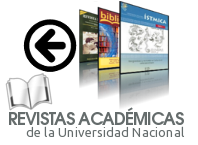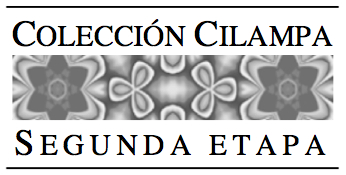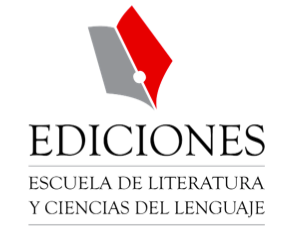Reaccentuated Sancho and His Theory of Mind
DOI:
https://doi.org/10.15359/rl.1-69.1Keywords:
Don Quixote, Miguel de Cervantes, Alfonso Sastre, theory of mind, Sancho PanzaAbstract
Since the publication and translations of the greatest Cervantine novel, Don Quixote, various authors have written and rewritten, recreated and reaccentuated the images of knight and squire. In his play The Infinite Journey of Sancho Panza, Alfonso Sastre reaccentuates and redistributes the roles of Don Quijote and Sancho. This article presents an analysis of the cognition of reaccentuated Sancho and concludes that due to his theory of mind, preserved in Sastre’s work, the reader cannot differentiate between Sancho of Cervantes and Sancho of Sastre.
References
Aznar, José Camón. El Pastor Quijótiz. Madrid: Espasa, 1969.
Bakhtin, Mikhail M. Towards a Philosophy of the Act. Austin: University of Texas Press, 1993.
Bakhtin, Mikhail M. The Dialogic Imagination: Four Essays. Austin: University of Texas Press, 1981.
Bakhtin, Mikhail M., y P. N. Medvedev. The Formal Method in Literary Scholarship. Baltimore: John Hopkins University Press, 1991.
Borges, Jorge Luis. Ficciones. Caracas: Ayacucho, 1993.
Calvo, Javier Huerta. Don Quijote desde el siglo XXI. Madrid: Centro de Estudios Cervantinos, 2005.
Cervantes Miguel de. El Ingenioso Hidalgo Don Quijote de la Mancha, John J. Allen, ed. Madrid: Cátedra, 2008.
Cervantes, Miguel de. Segunda parte del Ingenioso Caballero Don Quijote de la Mancha, John J. Allen, ed. Madrid: Cátedra, 2009.
De Miguel Martínez, Emilio. Teatro español: 1980-2000. Catálogo Visitado. Salamanca: Universidad de Salamanca, 2002.
Flaubert, Gustave. Madame Bovary, Margaret Mauldon, trad. Overstall: Oxford University Press, 2004.
Harris, Paul. Theories of Theories of Mind. Nueva York: Cambridge University Press, 1996.
Jaén, Isabel. «Cervantes and the Cognitive Ideas of His Time: Mind and Development in Don Quixote», Cervantes: Bulletin of the Cervantes Society of America 32, 1 (2012): 71-98. DOI: 10.1353/cer.2012.0004.
Johnson, Anita. «Alfonso Sastre: Evolución y síntesis en el teatro español contemoráneo», Anales de la Literatura Española Contemporánea 17, 1-3 (1992): 195-206.
Ledesma, Antonio. La nueva salida del valeroso caballero D. Quijote de la Mancha: tercera parte de la obra de Cervates. Barcelona: Casa Editorial Lezcano, 1905.
Madariaga, Salvador de. Guía del lector del Quijote: Ensayo psicológico sobre el Quijote. Madrid: Ríos Rosas; Barcelona: Cortes, 1926.
Mancing, Howard. Cervantes y su mundo. Kasel: Reichenberger, 2005.
Mancing, Howard. The Chivalric World of Don Quijote: Style, Structure, and Narrative Technique. Columbia: University of Missouri Press, 1982.
Mancing, Howard. Theory of Mind and Literature. West Lafayette: Purdue University Press, 2011.
Neisser, Ulric. Cognition and Reality: Principles and Implications of Cognitive Psychology. San Francisco: W. H. Freeman, 1976.
O’Connell, Sanjida. Mindreading: An Investigation into How We Learn to Love and Lie. Nueva York: Doubleday, 1998.
Paco, Mariano de. Teatro español contemporáneo. Autores y tendencias. Kassel: Reichenberger, 1995.
Palmer, Alan. Fictional Minds. Lincoln: University of Nebraska Press, 2004.
Romero Flores, Hipólito R. Biografía de Sancho Panza. Filósofo de la sensatez. Barcelona: Aedos, 1969.
Sastre, Alfonso. El viaje infinito de Sancho Panza. Madrid: Sociedad General de Autores, 1984.
Sastre, Alfonso. Notas para una Sonata en Mi (Menor). Murcia: Universidad de Murcia, 1993.
Unamuno, Miguel de. Niebla. Mario J. Valdés, ed. Madrid: Cátedra, 1987.
Zunshine, Lisa. Why We Read Fiction: Theory of Mind and the Novel. Columbus: Ohio State University Press, 2006.
Downloads
Published
How to Cite
Issue
Section
License
Principios básicos:
a) Los autores conservarán los derechos de propiedad intelectual de sus aportes o artículos;
b) Cada autor deberá indicar expresamente que ese artículo lo entrega, en calidad de exclusividad, a la revista LETRAS; y
c) La revista Letras se reservará el derecho de autorizar para fines académicos no lucrativos la reproducción y uso de ese material por parte de terceros, siempre que éstos indiquen expresamente la procedencia del artículo. Todo ello se postula en concordancia con la normativa de "Creative Commons Atribution License", recomendada.

This work is licensed under a Creative Commons Attribution-NonCommercial-NoDerivs 3.0 Costa Rica License.















